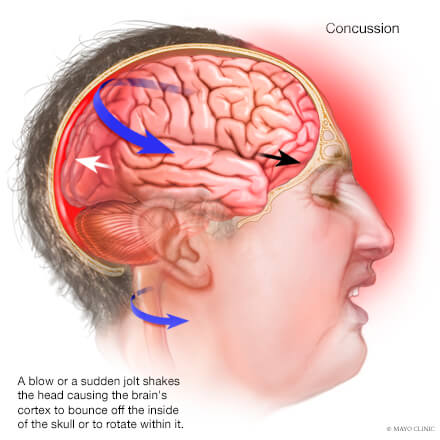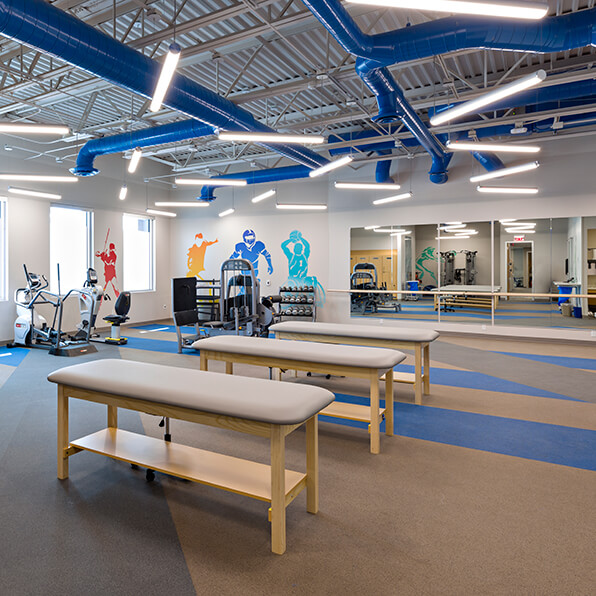
A concussion is a traumatic brain injury that affects your brain function. Effects are usually temporary, but they can include headaches and problems with concentration, memory, balance, and coordination. Concussions are usually caused by a blow to the head but blows to other parts of the face and body can also create rotational forces to the head that cause a concussion. Some concussions cause you to lose consciousness, but most do not. It’s possible to have a concussion and not realize it.
Concussions are particularly common in contact sports, such as football. Most people usually recover fully after a concussion.
The signs and symptoms of a concussion can be subtle and may not show up immediately. Most symptoms resolve in a few days, but sometimes symptoms can persist for weeks or even longer. Common symptoms after a concussive traumatic brain injury are headache, loss of memory (amnesia), and confusion. The amnesia usually involves forgetting the event that caused the concussion.
Signs and symptoms of a concussion may include:
- Headache or a feeling of pressure in the head
- Temporary loss of consciousness
- Confusion or feeling as if in a fog
- Amnesia surrounding the traumatic event
- Dizziness or “seeing stars”
- Ringing in the ears
- Nausea
- Vomiting
- Slurred speech
- Delayed response to questions
- Appearing dazed
- Fatigue
You may have some symptoms of concussions immediately. Others may be delayed for hours or days after injury, such as:
- Concentration and memory complaints
- Irritability and other personality changes
- Sensitivity to light and noise
- Sleep disturbances
- Psychological adjustment problems and depression
- Disorders of taste and smell


